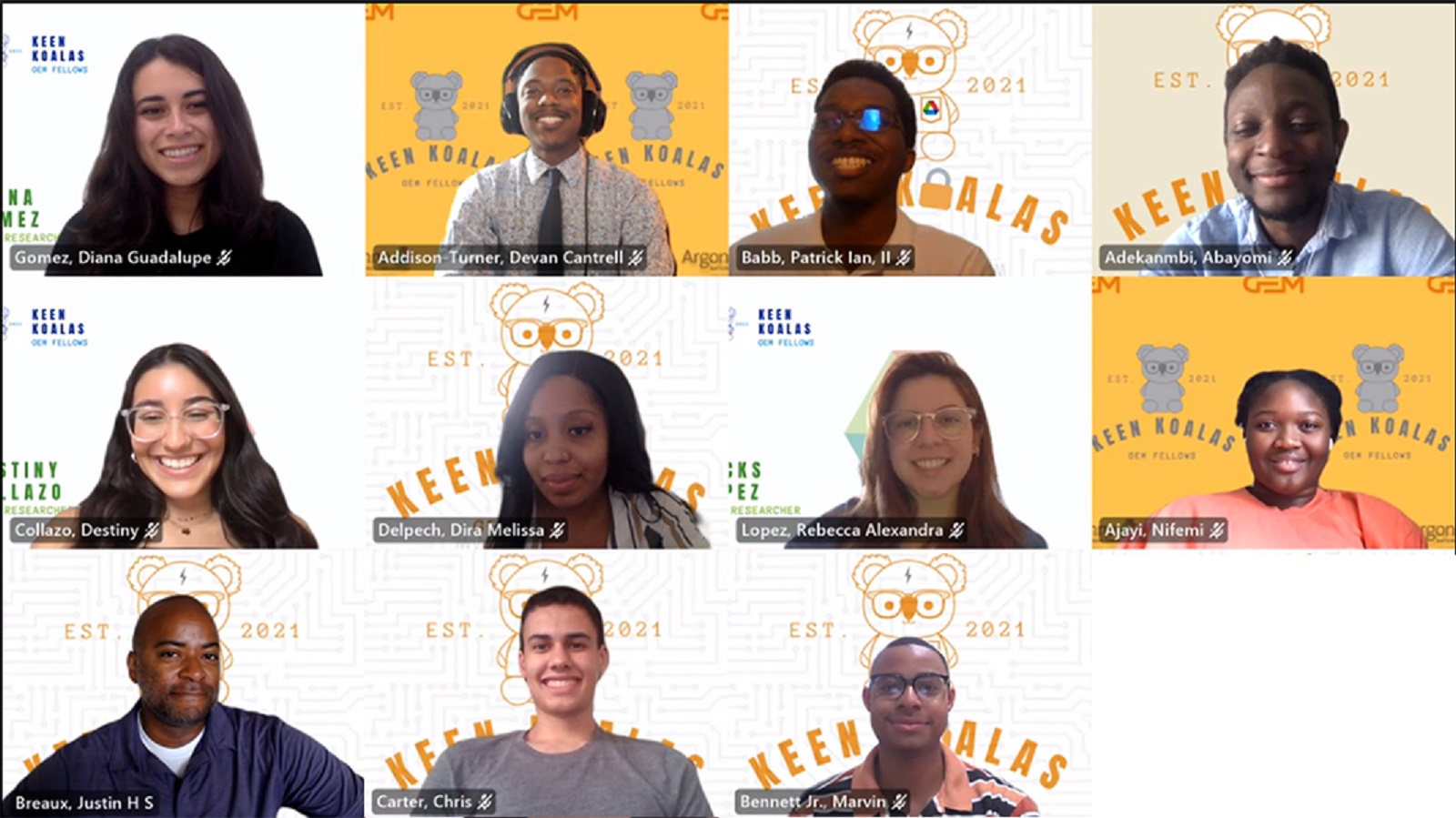
When Jason Ortiz went back to school to complete his doctorate after five years of working at Microsoft as a software engineer, he was excited but apprehensive.
“It was scary to explain to my family why I’m leaving my job,” he explained. “And thinking of how to finance my graduate studies was stressful.”
Now, however, thanks to a summer internship with the U.S. Department of Energy’s Argonne National Laboratory, Ortiz has a bright future and plans to research extended reality (XR) — technology that encompasses areas such as virtual reality and augmented reality to immerse people in virtual worlds.
“I want to become a professor and encourage more minority students to participate in STEM. Wherever I go, I hope to contribute to that [STEM] space and the legacy that the GEM Consortium creates.” — Jason Ortiz, GEM intern
The internship is managed in partnership with the National Consortium for Graduate Degrees for Minorities in Engineering and Science (GEM). GEM seeks exceptionally talented students from historically underrepresented groups across the country and provides them with opportunities to develop critical skills in science, technology, engineering and mathematics (STEM) and advance in key STEM fields. Part of this support includes developing and expanding the students’ academic and professional networks.
“GEM provides not just free tuition, which sets it apart from other fellowships,” said Marcus Huggans, GEM’s executive director for client relations. “It also gives students a foot in the door at professional organizations and corporations, so they can see how their degree can actually translate into a career. Furthermore, it connects them to an expansive community of GEM Fellows, alumni and university and employer representatives, who all support their journey through the Fellows’ graduate studies and as they advance in their professional careers.”
To give students firsthand insights into STEM professions, 13 national labs (including Argonne) partner with GEM as internship sites. For students working toward master’s degrees, they take part in two internships — first a 10-week summer internship, and then a second appointment they can fulfill at any time during the year. Ph.D. students have a single internship, in which they devise a timeline to complete their thesis in collaboration with the lab.
“Both Argonne and GEM put students first,” said Rob Schuch, Argonne’s university student program coordinator. “Mentoring GEM interns allows our researchers to nurture and train rising and early admission graduate students from historically underrepresented groups, exposing them to Argonne’s cutting-edge STEM disciplines and technology.”
For Abayomi Adekanmbi, the GEM internship has been instrumental in advancing his research in artificial intelligence. After working as a software engineer for three years, he decided to return to school. He conducted his first GEM internship over the summer of 2021, when he helped build a new type of cyber infrastructure called Sage.
Adekanmbi continues to build on his research in the second stage of the internship, as he transitions from the second year of his master’s degree at the University of Texas at Austin to a doctoral program.
“My goal is a career in research, specifically applying reinforcement learning to robotics; the internships have given me the opportunity to connect my interest to industrial research,” he said. “Now, as I get ready to finish my second internship, I’ve accomplished many of the things I promised myself I would achieve at the start of the program.”
Ortiz is the first in his family to pursue graduate-level education. He appreciates how GEM and Argonne have enabled him to advance his education without worrying about how to pay for school; he in turn wishes to support the future of the STEM community.
“I want to become a professor and encourage more minority students to participate in STEM,” Ortiz said. “Wherever I go, I hope to contribute to that [STEM] space and the legacy that the GEM Consortium creates.”
Argonne National Laboratory seeks solutions to pressing national problems in science and technology. The nation’s first national laboratory, Argonne conducts leading-edge basic and applied scientific research in virtually every scientific discipline. Argonne researchers work closely with researchers from hundreds of companies, universities, and federal, state and municipal agencies to help them solve their specific problems, advance America’s scientific leadership and prepare the nation for a better future. With employees from more than 60 nations, Argonne is managed by UChicago Argonne, LLC for the U.S. Department of Energy’s Office of Science.
The U.S. Department of Energy’s Office of Science is the single largest supporter of basic research in the physical sciences in the United States and is working to address some of the most pressing challenges of our time. For more information, visit https://energy.gov/science.
